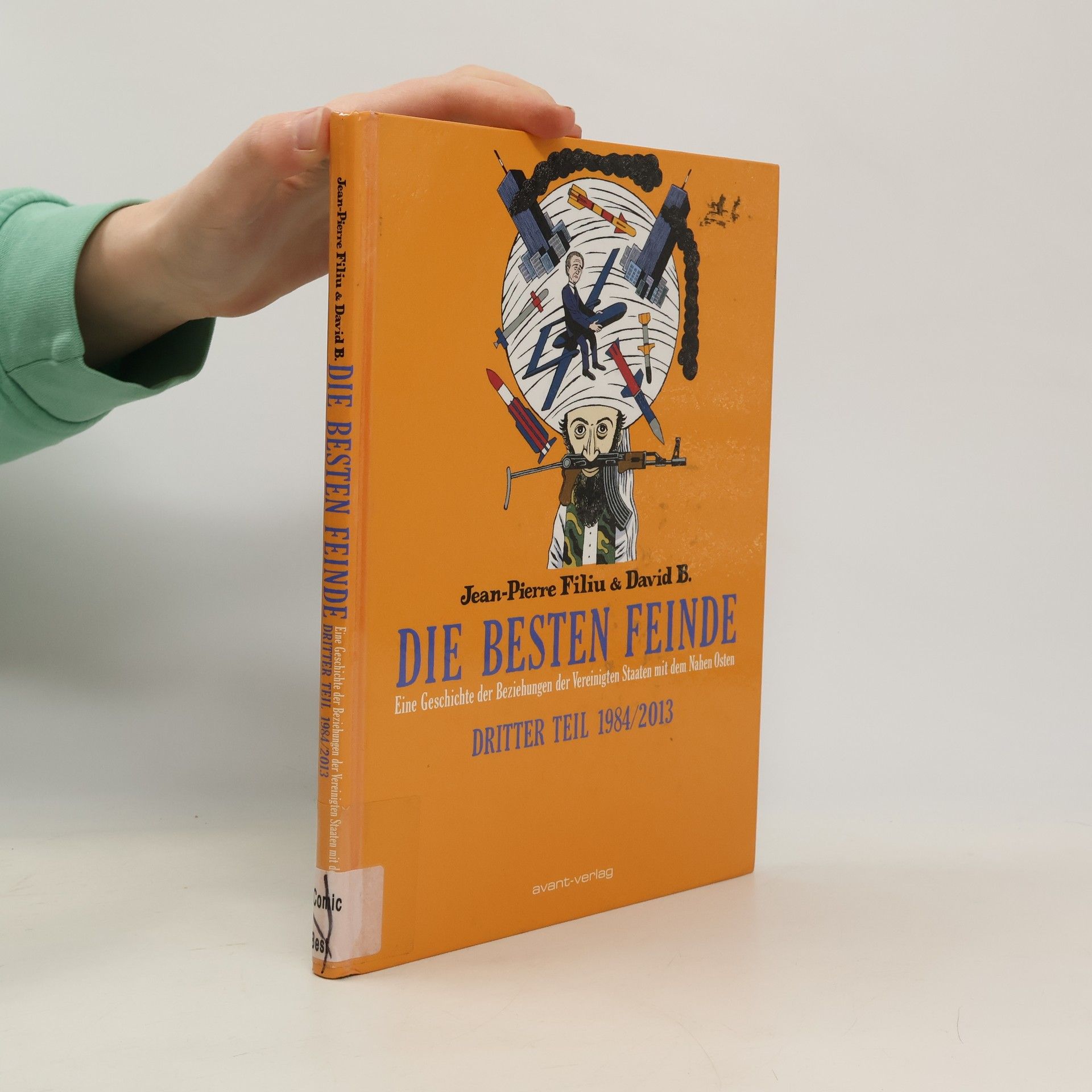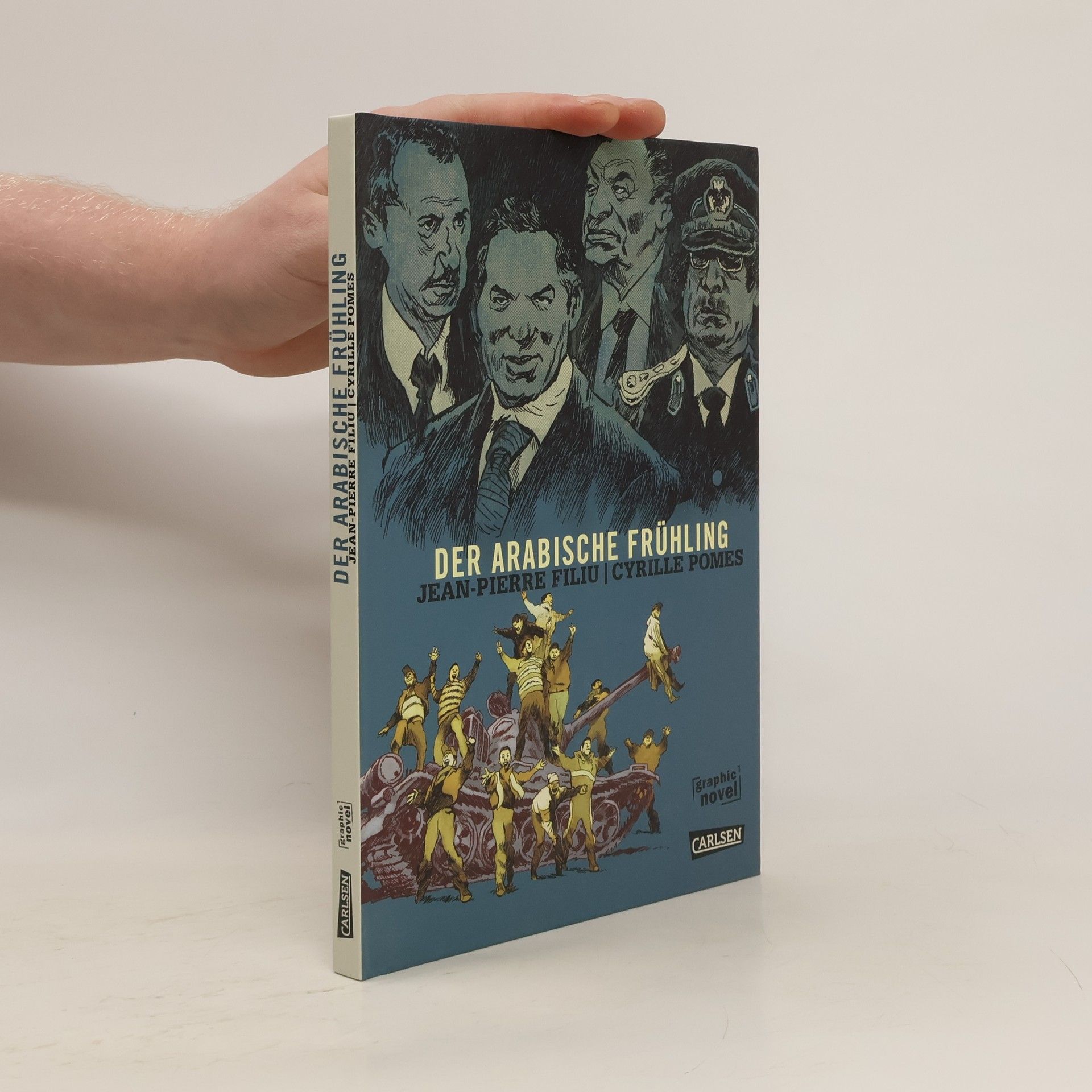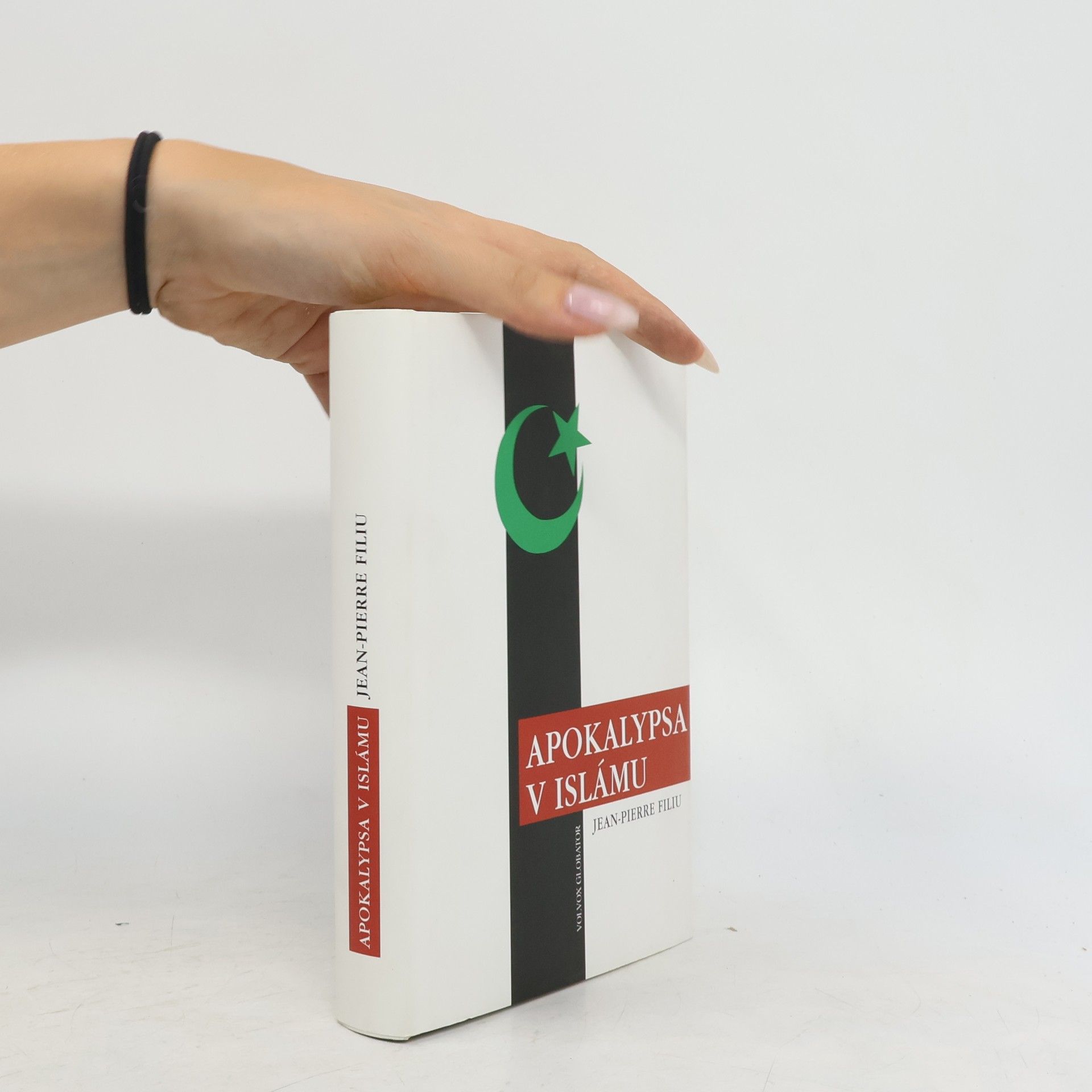Gaza
- 640pages
- 23 heures de lecture
The story of the struggle to control Gaza, from the mid-19th century to the present.






The story of the struggle to control Gaza, from the mid-19th century to the present.
In graphic novel format, covers the history of foreign relations between the United States and the Middle East, from 1783 to 1953.
Autor zmiňuje nejen apokalyptické vize v Koránu a klasických pramenech muslimské tradice, ale také aktuální literární produkci, která aplikuje vizi konce věku na současný svět. Čtenář má rovněž možnost dozvědět se o klíčových okamžicích z historie muslimských zemí a jejich představy o konci světa.
Am 17. Dezember 2010 beschlagnahmt die Polizei in der tunesischen Kleinstadt Sidi Bouzid den Obst- und Gemüsekarren eines jungen Straßenverkäufers - das Einzige, das er besaß, um seine Mutter und seine sechs Geschwister zu ernähren. In einer letzte Geste des Protests gegen jahrelange Schikanen und Demütigungen zündet sich Mohamed Bouazizi selbst an. Seine Tat löst Unruhen aus, die bald auf ganz Tunesien übergreifen. Ein despotisches Regime, das als unverwundbar galt, wird innerhalb von drei Wochen hinweggefegt. Es ist der Beginn des Arabischen Frühlings, der bis heute andauernd und eine ganze Region erschüttert. Jean-Pierre Filiu und Cyrille Pomès schildern diese Ereignisse aus allernächster Nähe und stellen dabei jene in den Mittelpunkt, die dieser Welle des Protests ein Gesicht gaben: mutige Frauen und Männer, die ihr Engagement nicht selten mit dem Leben bezahlt haben. Sie verdienen es, dass wir uns an sie erinnern.